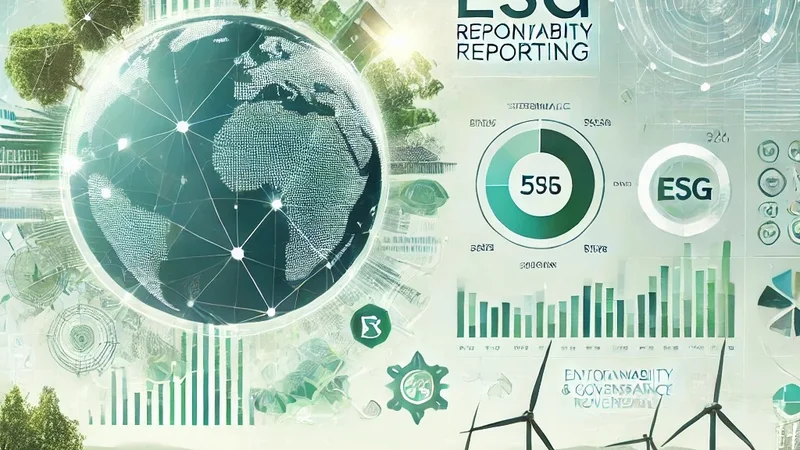Embracing Global Standards: The ISSB and the Future of Sustainability Reporting
In an era defined by the urgent need for sustainability, the International Sustainability Standards Board (ISSB) has emerged as a critical player in standardizing sustainability-related disclosures. With the release of its inaugural IFRS Sustainability Di
•
Nov. 25, 2024

In an era defined by the urgent need for sustainability, the International Sustainability Standards Board (ISSB) has emerged as a critical player in standardizing sustainability-related disclosures. With the release of its inaugural IFRS Sustainability Disclosure Standards—IFRS S1 and IFRS S2—the ISSB aims to provide a global baseline for transparent and comparable sustainability reporting. This milestone represents a significant leap forward in harmonizing how organizations report their environmental, social, and governance (ESG) impacts.
What Are IFRS S1 and IFRS S2?
The IFRS S1 standard focuses on general sustainability-related disclosures, while IFRS S2 zeroes in on climate-related reporting. Together, these frameworks are designed to reduce the complexity and inconsistency that currently plague sustainability reporting. For businesses and investors, this means clearer insights into companies’ ESG performance and risks, leading to more informed decision-making.
A Global Adoption Trend
The ISSB's standards are gaining traction across the globe. Countries like Turkey and Brazil have already adopted these frameworks, with economies representing over half of the global GDP showing support. The United Kingdom is considering mandatory implementation of these standards for listed companies by January 2026, a decision expected by the second quarter of 2025. This growing adoption reflects a shared understanding of the importance of unified sustainability reporting for global economic stability and environmental stewardship.
Why Standardization Matters
Historically, sustainability reporting has been fragmented, with companies choosing from multiple frameworks that often lack comparability. The ISSB addresses this issue by introducing a consistent global standard that enables stakeholders to:
- Evaluate Risks and Opportunities: Investors can better assess how companies are managing climate risks and leveraging sustainability-related opportunities.
- Enhance Accountability: Companies are held to higher levels of transparency, fostering trust and credibility.
- Simplify Compliance: A unified framework reduces the burden of navigating multiple reporting standards.
Corporate Climate Transition Plans
One of the ISSB's pivotal initiatives is harmonizing disclosures on corporate climate transition plans. These plans outline how companies intend to meet their net-zero targets, a key aspect of combating global warming. By standardizing these disclosures, the ISSB ensures that businesses provide actionable and reliable data, crucial for achieving climate goals.
Challenges Ahead
While the ISSB's standards promise significant benefits, challenges remain. Organizations may face initial costs and complexities in aligning with the new requirements. Additionally, governments must ensure robust enforcement mechanisms to avoid greenwashing or superficial compliance. However, these challenges are outweighed by the long-term benefits of fostering a sustainable global economy.
A Call to Action
As the ISSB's standards gain momentum, companies, policymakers, and investors must embrace this shift. Standardized sustainability reporting is not just a regulatory requirement; it is a strategic imperative for businesses looking to thrive in a world increasingly focused on ESG performance.
The ISSB has laid the groundwork for a future where sustainability reporting is clear, consistent, and globally aligned. By adopting these standards, we take a collective step towards a more transparent and sustainable world.
Related

Building a Sustainable Future: The Growing Role of ESG Reporting and Audits
Sustainability is no longer just a buzzword—it’s a business imperative. Companies are being held accountable not just for their financial performance but also for their impact on the planet, people...
Read more
Navigating Growth and Change: How Advisory Services Drive Business Success
In today’s fast-paced business environment, navigating complex decisions requires expertise, precision, and a clear understanding of financial strategy. Advisory services play a critical role in he...
Read more
Technology and Automation in Accounting and Auditing: Adapting to a Digital-First Future
The world of accounting and auditing is being reshaped by cutting-edge technologies, bringing opportunities and challenges for professionals and businesses alike. From blockchain to artificial inte...
Read more